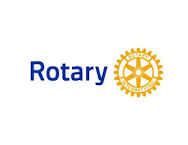Despite significant progress in recent years, malaria, pneumonia (lower respiratory infections), and diarrheal diseases remain among the leading causes of illness and death for children under five in sub-Saharan Africa.
In response, Rotary, in collaboration with the Bill & Melinda Gates Foundation (Gates Foundation) and World Vision, is launching its ‘Rotary Healthy Communities Challenge’ to strengthen community health systems to deliver lasting disease prevention and treatment.
Over the next three years, the Rotary Foundation, World Vision, and the Gates Foundation will collectively contribute US$30 million to fund large-scale, high-impact programming, with local leadership and organizations to improve health outcomes for children in the Democratic Republic of Congo (DRC), Mozambique, Nigeria, and Zambia.
Rotary members will work with these organizations to strengthen community health systems and increase the capacity of community health workers in order to ensure that programs are sustainable. “Rotary is committed to strengthening health systems and combating diseases by empowering communities to use locally-driven solutions that work,” said Rotary International President Gordon McInally.
“Together, with the Gates Foundation and World Vision, we will invest in proven methods to help communities provide a healthier and more hopeful future in which everyone will have the opportunity to thrive.”
The selection of the four participating countries was based on disease burden, Rotary member engagement, partnership potential, and alignment with Ministry of Health strategies.
me Rotary members in each of the participating countries have worked with local partners and ministries of health to develop a program and implementation plan using an evidence-based community health worker model adapted to address each country’s health priorities. “Investing in community health workers is one of the best things we can do to bolster the fight against malaria and other preventable diseases,” said Philip Welkhoff, Director of Malaria at the Gates Foundation.
“We are proud to build on our partnership with Rotary and World Vision and are confident this new initiative will help ensure that children in these four countries have the opportunity to grow up healthy and reach their full potential.”
The ‘Rotary Healthy Communities Challenge’ was built upon the success of the Rotary club-led ‘Partners for a Malaria-Free Zambia’ programme that supported the community health workers to reduce the incidence of malaria in ten target districts within two highly affected provinces.
with support from the Rotary Foundation, World Vision USA, and the Gates Foundation – each
contributing $2 million – 2,500 community health workers were added to the national health
system in Zambia, allowing for more effective malaria diagnosis and treatment for more than 1.3
million people.
“It’s an honour to collaborate with the Rotary Foundation and the Gates Foundation to tackle these
top killers of children,” said Edgar Sandoval Sr., World Vision president and CEO. “When partners
join together, we can have a greater impact on helping the most vulnerable reach their full God-given potential.”
Rotary members throughout the world develop and implement sustainable, community-driven
projects that fight disease, promote peace, provide clean water, support education, help mothers
and children, grow local economies and protect the environment.
Over the last 100 years, $5.5 billion has been awarded through The Rotary Foundation – Rotary’s charitable arm that
helps clubs work together to perform meaningful, impactful service.
About Rotary:
Rotary brings together a global network of volunteer leaders dedicated to tackling the world’s
most pressing humanitarian challenges.
Rotary connects 1.4 million members of more than
46,000 Rotary clubs in over 200 countries and geographical areas.
Their work improves lives at
both the local and international levels, from helping those in need in their own communities to
working toward a polio-free world.
 Hottestgistnaija.com
Hottestgistnaija.com





